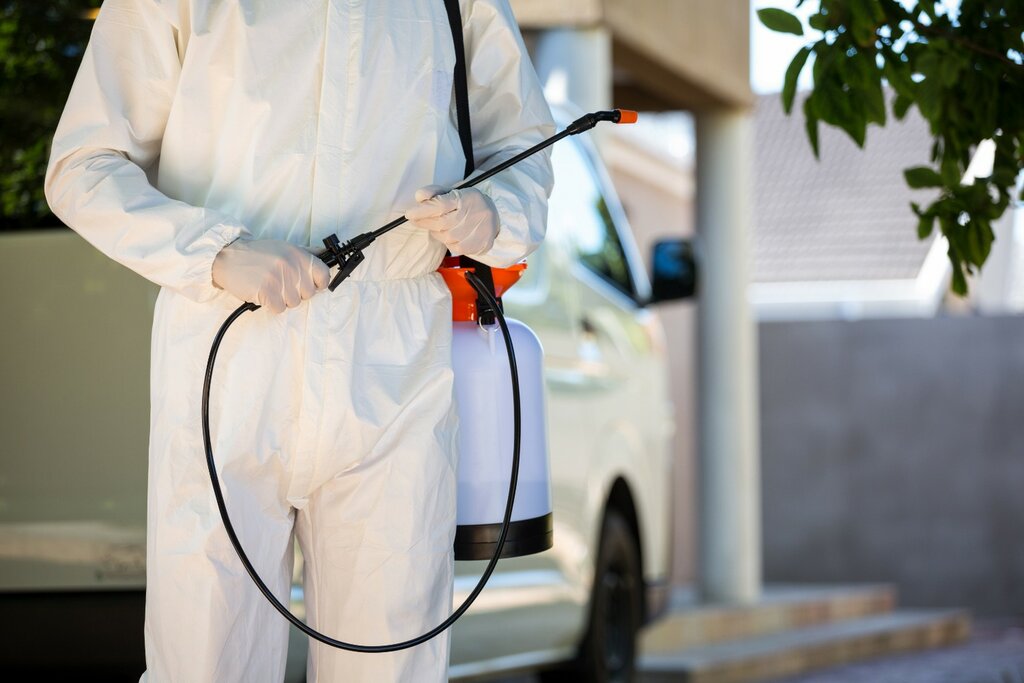Dealing with pests isn’t just about using sprays or traps. It takes proper knowledge and hands-on experience to handle infestations effectively. That’s why pest control classes are so important—they teach both the theory and practical skills needed to manage different types of pests. Without real-world training, professionals may struggle with identifying infestations, using pesticides safely, or applying the right treatment methods. Learning from experts and getting field experience makes all the difference in becoming a skilled pest control specialist.
A well-trained pest control professional doesn’t just eliminate pests—they also prevent future infestations. With the right techniques, safety measures, and equipment, pest control experts ensure homes, businesses, and industries stay pest-free. Practical training allows professionals to see how different pests behave in real environments, making their work more effective.

Why Practical Training Matters In Pest Control
Reading about pest control is one thing, but doing the job in real situations is another. The best way to learn is by practicing. Hands-on training helps professionals deal with unexpected challenges that often come up in real infestations. Some key benefits include:
-
Identifying pest infestations quickly – Learning to spot the early signs of pests before they cause serious damage.
-
Using pesticides safely and correctly – Ensuring chemicals are applied properly to avoid harm to people, pets, and the environment.
-
Handling different pests with the right approach – Not all pests can be treated the same way, so training helps in choosing the best methods.
-
Learning to communicate with clients effectively – Explaining pest problems and solutions clearly to customers.
Classroom learning provides the foundation, but without practical training, it’s tough to apply that knowledge in real situations. Pest control professionals need hands-on experience to build confidence and efficiency in their work.
Common Pests And How To Control Them
Different types of pests require different methods of control. A good training program covers a wide range of pest problems, helping professionals understand how to deal with each one effectively.
Rodents (Rats And Mice)
Rodents cause damage by chewing through wires, contaminating food, and spreading diseases. They are common in homes, restaurants, and warehouses. Practical training helps professionals:
-
Identify rodent entry points and seal them properly
-
Use traps and bait stations effectively
-
Understand non-chemical control methods for sensitive areas
Cockroaches
Cockroaches are a major problem in kitchens, restaurants, and hotels. They spread bacteria and can trigger allergies. Training teaches professionals how to:
-
Locate hiding spots and treat infestations properly
-
Use bait stations, insect growth regulators, and sprays effectively
-
Prevent future infestations with proper sanitation measures
Termites
Termites silently destroy wood structures, causing major damage before they are even detected. Pest control training covers:
-
Recognizing early signs of termite activity
-
Applying termite bait stations and liquid treatments correctly
-
Using prevention techniques to protect buildings from future infestations
Bed Bugs
Bed bugs are difficult to remove and can spread quickly in hotels, homes, and offices. Effective training includes:
-
Identifying signs of infestation in furniture and bedding
-
Using heat treatments and other non-chemical methods
-
Applying insecticides safely in residential and commercial spaces
Essential Tools Used In Pest Control
Pest control professionals rely on different tools and equipment to get the job done efficiently. Training programs teach how to use these tools properly, ensuring safety and effectiveness. Some of the most commonly used tools include:
-
Sprayers – Used for applying pesticides and disinfectants.
-
Bait Stations – Help attract and eliminate pests like rodents and cockroaches.
-
Traps – Used for capturing rodents and insects without chemicals.
-
Protective Gear – Includes gloves, masks, and suits to ensure safety while handling chemicals.
-
Inspection Tools – Flashlights, moisture meters, and magnifiers help detect pest activity.
Learning how to use these tools correctly is a key part of hands-on training.
The Role Of Safety In Pest Control
Pest control involves handling chemicals and working in different environments, so safety is a top priority. Training programs emphasize the importance of:
-
Wearing protective gear while handling pesticides
-
Following legal guidelines for chemical applications
-
Using eco-friendly and humane pest control methods whenever possible
-
Proper storage and disposal of pest control products
By focusing on safety, professionals can protect themselves, their clients, and the environment while providing effective pest control solutions.
Challenges Faced In Pest Control
Even with proper training, pest control professionals face several challenges. Some of the most common issues include:
-
Pest Resistance – Over time, some pests become resistant to common pesticides. Learning alternative control methods is essential.
-
Client Expectations – Customers often expect immediate results, but pest control requires patience and proper planning.
-
Environmental Concerns – Using chemicals requires careful handling to prevent environmental damage. Eco-friendly methods are becoming more important.
-
Hard-To-Reach Areas – Some pests hide in places that are difficult to treat, requiring specialized techniques.
Career Opportunities In Pest Control
Pest control is a growing industry with many career opportunities. Completing pest control classes opens doors to different roles, including:
-
Residential pest control services
-
Commercial pest management for businesses
-
Termite inspection and treatment specialists
-
Wildlife control services
-
Integrated Pest Management (IPM) consulting
With the right training, professionals can build a successful career in the pest control industry, helping homes and businesses stay pest-free.
Why Training From Experts Is Important
Learning from experienced professionals makes a big difference in pest control training. Experts share real-world insights that go beyond textbooks, helping students understand:
-
The latest pest control techniques and industry trends
-
Common mistakes to avoid in pest management
-
How to handle unique pest problems that aren’t covered in standard training materials
A combination of classroom lessons and field experience ensures that professionals are fully prepared for real-world challenges.
Final Thoughts
Pest control isn’t just about spraying chemicals—it’s about understanding pests, using the right techniques, and applying solutions safely and effectively. Enrolling in pest control classes is the best way to gain practical skills and hands-on experience needed for real-world success. With the right training, pest control professionals can confidently handle infestations, prevent future problems, and build a strong career in this growing industry. Investing in proper education and hands-on practice ensures better pest control solutions, safer environments, and long-term success in the field.


















